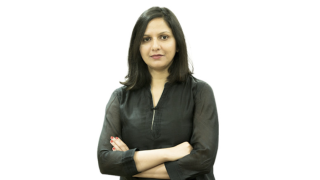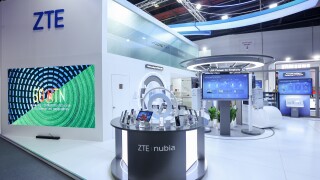Last year saw a raft of changes for Virgin Media, not least the £31 billion merger with O2 UK. Following this high-profile deal, Diego Tedesco has stepped into the role of director of wholesale – fixed in October 2021. Capacity spoke to Tedesco about how he approaches leading a wholesale division and his new position.
“I’m coming into the role after the business has been through three or four years of very strong performance and success, particularly taking advantage of what’s been a significant demand in backhaul services for 5G.
“That has really enabled us to hone in on our USPs and win a significant volume of business in that space over the last few years.”
This led to increased inflows of business that Tedesco says has “really supported our performance and helped us thrive over the last few years”.
Having been with the company during this period of growth as a commercial director, he saw how those deals were executed with a clear vision on how Virgin Media O2 will progress.
“What I see as my priority for the business is continuing to build on that success while acknowledging that from a 5G backhaul perspective, while we’ve made some huge inroads, that’s going to start to plateau because of the big wave of demand from MNOs. There are still more companies, but it’s going to certainly plateau over the coming period.”
This means Tedesco is looking at where in the market Virgin Media O2 should be deploying its services – be it hyperscalers, which are looking to build significant infrastructure capability or the huge number of alternative networks (altnets) that emerged during the last 18-24 months in the UK. More broadly, the continuing trends of digital transformation and digitalisation of processes within businesses, means that there are many areas where Virgin Media O2 can explore deploying its infrastructure.
“For me, it’s about how do we start to build on the credibility that we have in our traditional markets and our traditional channels, and really start to build that in some of the new areas of demand; all the while staying true to the things that have really made us successful, which is about being partnership-focused and creative and innovative from a commercial perspective,” says Tedesco.
Virgin Media’s merger with O2 UK brought several changes to the newly formed company, but for Tedesco this evolution was about ensuring that the new entity was “just as committed to the wholesale market as Virgin Media was”. He says that the new company is even more committed, meaning the joint venture is an opportunity rather than a risk.
“There are a number of things being explored within Virgin Media O2 at the moment, in terms of where we can take wholesale, and how can we make our services available more broadly than they are today,” he explains.
He went on to say that the “financial horsepower” of Liberty Global and Telefónica, Virgin Media O2’s parent companies, means the firm is in a “better place now than ever to invest in our infrastructure and in our network”, of which the recently announced £10 billion of investment in the UK over the next five years is an example.
Tedesco acknowledges that increasing flexibility and agility during the early days of Covid-19 had a knock-on effect across the entire wholesale space, as well as his business unit.
“While flexibility has always been important in our solutions and our commercial constructs, the pandemic really ramped up that need significantly,” he says.
One response to this need is Virgin Media O2’s UltimateFlex, which offers customers connectivity services in the wholesale market with, what Tedesco says is “the ultimate level of flexibility”.
“We took away minimum contract terms, so customers can cancel services with a minimum amount of notice. They can ramp up and down bandwidth flexibly throughout that term and the price of their circuits automatically benchmarks to the market. There’s no kind of initial excess construction charges,” he explains.
At the same time, Tedesco says the way in which Virgin Media O2 operates now highlights the need to listen to its partners and the importance of responding genuinely to their needs.
“What our customers have said to us is there are too many suppliers in the connectivity market, who, while they’re listening, they’re not really doing anything in order to respond to their evolving needs. And because these needs are evolving much more rapidly than they ever have been because of the environment, that’s a big problem,” he says.
Tedesco explains that Virgin Media O2 is concentrating its energies on developing innovations in underlying infrastructure, because while sophisticated automation and other top-layer applications can disrupt certain businesses and sectors, the infrastructure must grow alongside industries.
“Businesses require a leap forward in terms of the underlying infrastructure that supports them, because they need high levels of bandwidth and capacity. They need super-low latency to ensure that those use cases meet their end users’ requirements. Those are the areas that we’re focusing on right now,” says Tedesco.
Network security is one area that is being developed, and has been a recipient of Virgin Media O2’s aforementioned investment.
“One of the biggest areas that we’ve identified as needing investment is our network capability. And that’s not just from speed, capacity and latency perspectives, but equally from a security perspective,” he says.
Having already invested many millions of pounds in 2021, in 2022 Virgin Media O2 plans to continue to increase investing in its national high-capacity services network. This secure network is dedicated to providing business-to-business services and offers significant increases in bandwidth and speed without compromising on security. “It’s an acknowledgment from us that security is such a relevant concern for so many of the partners that we engage with and their customers that we will meet all these concerns,” says Tedesco.
After the merger, Tedesco was pleased to see that the O2 side of the business was just as committed to sustainability as the Virgin Media side was.
“We’ve a goal as Virgin Media O2 to achieve net zero carbon operations for scopes one and two by the end of 2025,” says Tedesco.
When they were separate entities, Virgin Media and O2 UK were both working to achieve similar goals. Virgin Media was a member of RE100, the climate group initiative, and sourced 100% of its power requirements from renewable energy sources. Meanwhile, O2 UK sourced all its electricity from renewable sources, where it controlled builds, and while it acknowledged that many aspects of its operations were outsourced, it ensured that its outsourcing partners followed the same policy.
Further, Virgin Media cut its operational carbon footprint by 46% since 2014, while O2 UK’s recycling scheme recycled 3.3 million devices.
“There’s also a significant push to ensure that our products help to reduce emissions, whether through enabling home working or reducing travel. The research that we’ve done has shown that 14 tonnes of carbon dioxide emissions are being avoided because of this work.”
Having touched on opportunities in new markets, Tedesco says this is one area he will be focusing on.
“One of the things that we’re doing is really starting to build the right partnerships to go and serve these markets, and ensuring that we, as a business, are focusing our people on making inroads into those elements of the markets,” he says, adding that this is an area that the business has not been “proactively trying to address” and therefore is a big area of focus for company “in terms of pivoting as an organisation”.
Tedesco’s other area of focus is digital – specifically zero-touch provisioning, giving customers autonomy in the new self-service climate.
“Though people are one of our biggest strengths, our partners require our people to do things that they should be able to do on a zero-touch basis. So we’re trying to build end-to-end digital platforms that allow our partners to engage with us in a much more zero-touch way,” says Tedesco.
Above all, Tedesco and his team are all about doing, as listening to Virgin Media O2’s partners made it clear to him that “there’s a gap in the market for a connectivity supplier that genuinely listens to their needs and responds quickly”.






